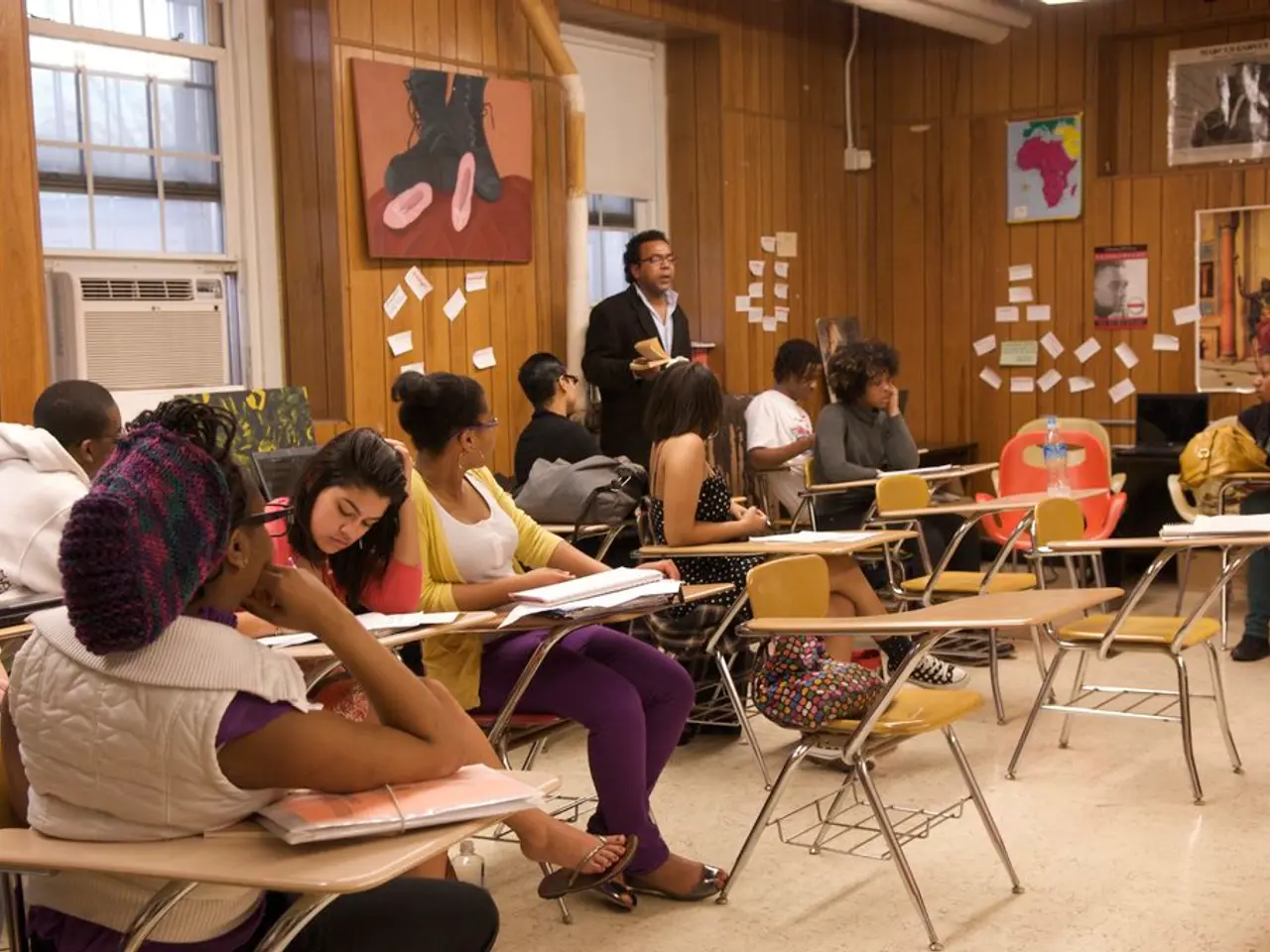Guide for Practical Understanding in Permaculture Training
In the realm of sustainability and ecological design, permaculture education is taking centre stage. With a growing demand for sustainable practices and a focus on hands-on, interactive learning, the future of permaculture education is full of promise.
Regenerative agriculture workshops offer flexible and interactive ways to learn about permaculture, allowing individuals to immerse themselves in the subject and apply what they've learned in real-world settings. These workshops, led by experts, provide an opportunity to learn from the best and meet others who share similar interests.
One such example is the Keela Permaculture Farm in Portugal, which offers a Certified Permaculture Design Course (PDC). This course, set at an established permaculture farm, covers permaculture philosophy, ecological foundations, design methodologies, and applications, with practical examples such as food forests, agroforests, natural buildings, and animal husbandry.
Another noteworthy program is the Turiyayoga Permaculture Design Course based in the UK. This internationally recognized PDC integrates permaculture ethics, design principles, and practical projects with a strong focus on personal, social, and community building skills.
The Nordic Permaculture Academy’s Permaculture Teachers Training, an internationally certified course, aims at permaculture practitioners who already hold a PDC certificate and want to become effective teachers. It emphasizes teaching skills, effective knowledge transfer, class design for various learning styles, and integrating permaculture into lifestyle and livelihoods.
Online learning platforms, such as the Permaculture Education Institute, also play a significant role in permaculture education. Founded by Morag Gamble, this institute offers a comprehensive range of courses, from introductory permaculture to advanced teacher certification.
Youth Farming Programs around the world provide experiential learning opportunities through field visits, internships, and school gardens, fostering hands-on experience and mentorship in farming and sustainable practices.
Networking and community engagement is essential for experiential permaculture learning. Building connections in the field can be done by joining local permaculture groups, attending workshops, and using online forums. Sharing experiences and best practices is vital in networking and community engagement, and can be done through presentations, workshops, or writing.
In ecological design education, it's important to use different ways to check learning, such as site analysis reports, design projects, and learning outcomes. Assessing and evaluating learning outcomes requires practical assessments, feedback, and looking at long-term effects. Rubrics help make grading clear and fair in ecological design education.
The future of permaculture education is not just about learning theory, but about making education accessible and inclusive, and using new technologies to enhance learning. Studies show that hands-on learning boosts knowledge and inspires a lasting commitment to sustainable living.
As we navigate the challenges of creating sustainable ecosystems and communities, experiential learning in permaculture could have a big impact worldwide, teaching people how to create sustainable systems and live in harmony with nature. Let's take on the challenge of creating a worldwide network of learning centers that show the power of hands-on sustainability education and ecological design education. The future of our planet is at stake, and we must act now.
- Regenerative agriculture workshops in the realm of permaculture education offer flexible and interactive ways for individuals to immerse themselves in the subject, learn from experts, and apply what they've learned in real-world settings.
- The Keela Permaculture Farm in Portugal, for example, offers a Certified Permaculture Design Course (PDC) that covers various aspects of permaculture, including philosophy, ecological foundations, design methodologies, practical examples, and application.
- The Turiyayoga Permaculture Design Course based in the UK integrates permaculture ethics, design principles, and practical projects with a strong focus on personal, social, and community building skills.
- Networking and community engagement is crucial for experiential permaculture learning. Building connections in the field can be done by joining local permaculture groups, attending workshops, and using online forums to share experiences and best practices.




